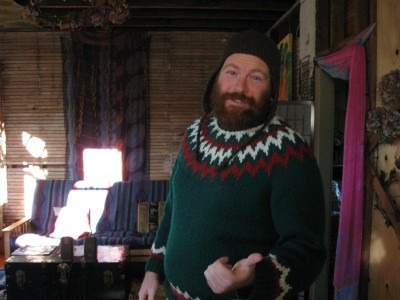Eddie Adam’s life is completely different now. He has a beautiful wife, four healthy children and a successful job. Twenty years ago, however, Adam was living on rations, jobless in a series of refugee camps in Turkey. When it comes to the question of whether NGOs and the United Nations can make a difference, his answer is a resounding “yes.”
“Some help came from the bishop of one of the Catholic churches in Germany, but mostly it was the United Nations,” says Adam.
In Turkey, according to Adam, the UN faced local government and police corruption and scarce resources, in a camp of around 7,000 people. In one of the camps, located on a military base, the refugees were bombed, caught between rebel forces attacking the base and government forces fighting back from the base. Surrounded by a fence, there was no way to get out without ID and permission, and even then the curfew was 5 p.m.
Still, it was better than being sent back to face Saddam Hussein after having gone AWOL to avoid being pressed into army service. “Once your name is in the file, then you’re protected by the United Nations. They can’t send you back.”
For others, though, the effectiveness of NGOs and the UN is in question. Some refugees were not as lucky as Adam: The United Nations didn’t arrive in time, and these unfortunate folk were sent back to Iraq.
Being in the camps, despite the lack of resources and daily hardship, was infinitely preferable to being outside their walls. The worst, says Adam, was not having warm water in the winter. It forced the refugees to get creative.
“We started making up heaters out of forks to boil water. We made lights out of IV lines.”
Christmas decorations were red cigarette packages hanging in abundance from the roof of the tent. Fruit rations for three people for a week consisted of a handful of grapes and a single apple. It would get so cold that they would use coals from a fire to warm the ground, in order to get some sleep. No blankets were provided and there were no sources of heat. It was still better than not being in the camp.
“I left the second camp I was in [trying to get across the border to Greece], and then I came back and I didn’t have ID. I had my cousin’s ID, and I got caught. There was a big fight in the camp and they called the police. The police came and they just started picking people, whoever they felt like not liking.”
Before Adam got sent back, he was able to approach the Canadian ambassador in Turkey.
“Mr. Tom. I still remember his name. He said, ‘Tell these people on the bus, any of these people who can come back here [after getting a file with the United Nations], I will help them to come to Canada.’” They had to have a United Nations file first, illustrating the importance of the protection of the UN. Once that happened, the Canadian ambassador was as good as his word. Adam sent him a letter, and two months later, he was in Canada.
Twenty years later, Adam reflects on the importance of the UN and the NGOs (and ambassadors) who helped him along the way. They helped him escape. They helped his younger brother escape. His quality of life is vastly improved from what it would have been had he stayed in the war-torn areas where he grew up.
“Like we said back then, you’ve been put behind the sun. So no one can get you.”
Adam’s story is reflective of countless other refugees who have found solace, despite the hardships, in the embrace of the UN and partner NGOs.
Could it be done better? Yes. Could there be less corruption? Undoubtedly.
In a world with war and suffering, though, the work they do is essential. Adam is proof that a difference is being made.




Sam Longstone
Nice colour and imagery in the description of Xmas decorations and using coal to warm the floor, reads well.
Aasim Raza
But I still think that UN’s role is very limited in a wider scheme of things. Unfortunately on many occasions where UN could have intervened and stopped US aggression they failed to do so, which speaks volumes of their ability to help people beyond acquiring refugee status or extending help to one family on humanitarian grounds.